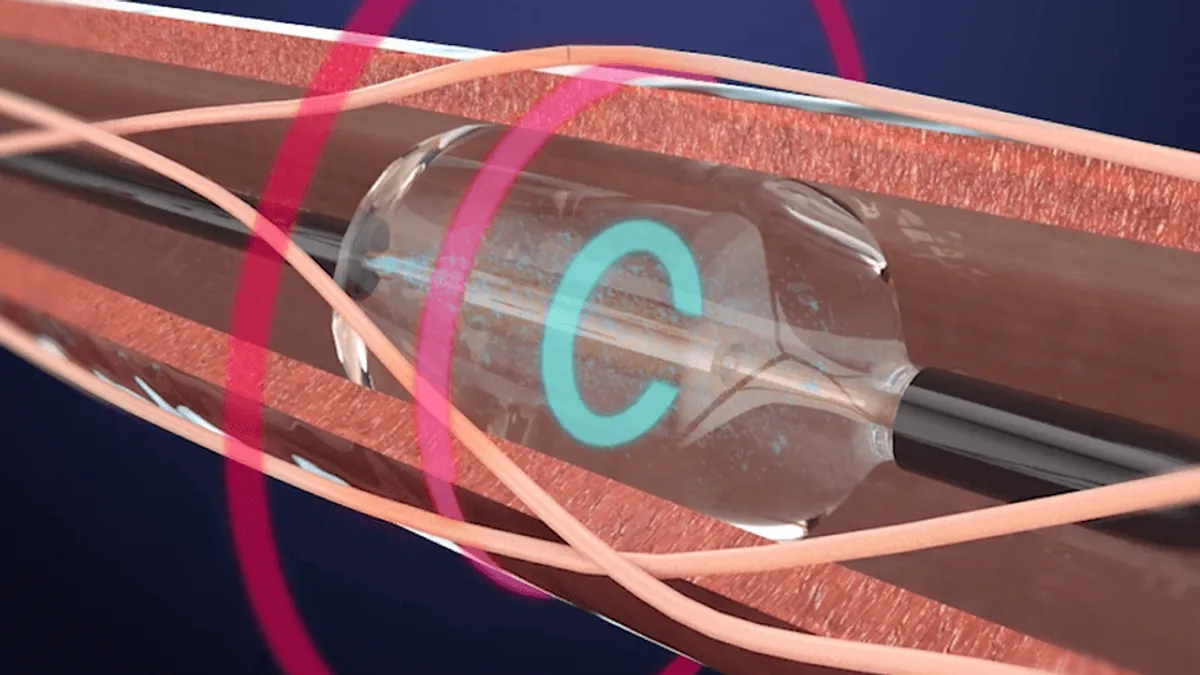Dive Brief:
- ReCor Medical has released a pooled analysis of three trials of its ultrasound renal denervation device, linking the intervention to consistent reductions in blood pressure across hypertension severity.
- The analysis, details of which were published in JAMA Cardiology, makes the case for the use of renal denervation to treat uncontrolled hypertension as ReCor and its parent company Otsuka Medical Devices await an approval decision from the U.S. Food and Drug Administration.
- ReCor simultaneously released the results of its pivotal RADIANCE II clinical trial in the Journal of the American Medical Association. As the medtech company revealed last year, the study met its primary endpoint because it reduced blood pressure by more than the sham procedure.
Dive Insight:
ReCor and Medtronic independently worked to rebuild confidence in ultrasound renal denervation after a high-profile failure in 2014. Since then, ReCor has published results from two cohorts of patients in its RADIANCE-HTN study and data from its pivotal RADIANCE II trial that suggest its Paradise uRDN System can reduce blood pressure in people with hypertension.
Pooling the data attempts to address questions about the robustness of the pivotal clinical trial that forms the centerpiece of ReCor’s filing for premarket approval. The investigators who first reported the RADIANCE II data last year said “regression to the mean is an important consideration” and, as such, “the results need to be replicated in a larger cohort with longer follow-up.”
The release of the new study’s results comes shortly after the European Society of Cardiology recommended renal denervation as an adjunctive blood pressure treatment. Michel Azizi, professor of medicine at Université Paris Cité and principal investigator on the study, referenced the recommendation, noting that ReCor’s results are “in line with the new 2023 consensus statement.”
While Medtronic’s trial missed its primary endpoint, physicians said renal denervation could still be a viable treatment for patients with high blood pressure. “If you look at the totality of the data, the therapy does work. It’s very consistent, the blood pressure drop that we’ve seen with other studies using this type of technology in renal denervation,” said David Lee, a professor of cardiovascular medicine at Stanford, who has participated in multiple studies of Medtronic’s Symplicity Spyral system.
The ReCor study in JAMA Cardiology reports on a patient-level pooled analysis of data on 506 participants in ReCor’s three sham-controlled clinical trials. ReCor and its collaborators performed the analysis to show if the magnitude of effect is consistent across studies of patients with different levels of hypertension severity.
Across the analysis, ReCor linked its Paradise uRDN System to a 5.9 mm Hg reduction in daytime ambulatory systolic blood pressure compared to the sham procedure. The reduction in the pivotal trial was 6.3 mm Hg. Reductions in blood pressure were consistent across the three trials for all parameters “irrespective of measurement method,” according to the researchers.










